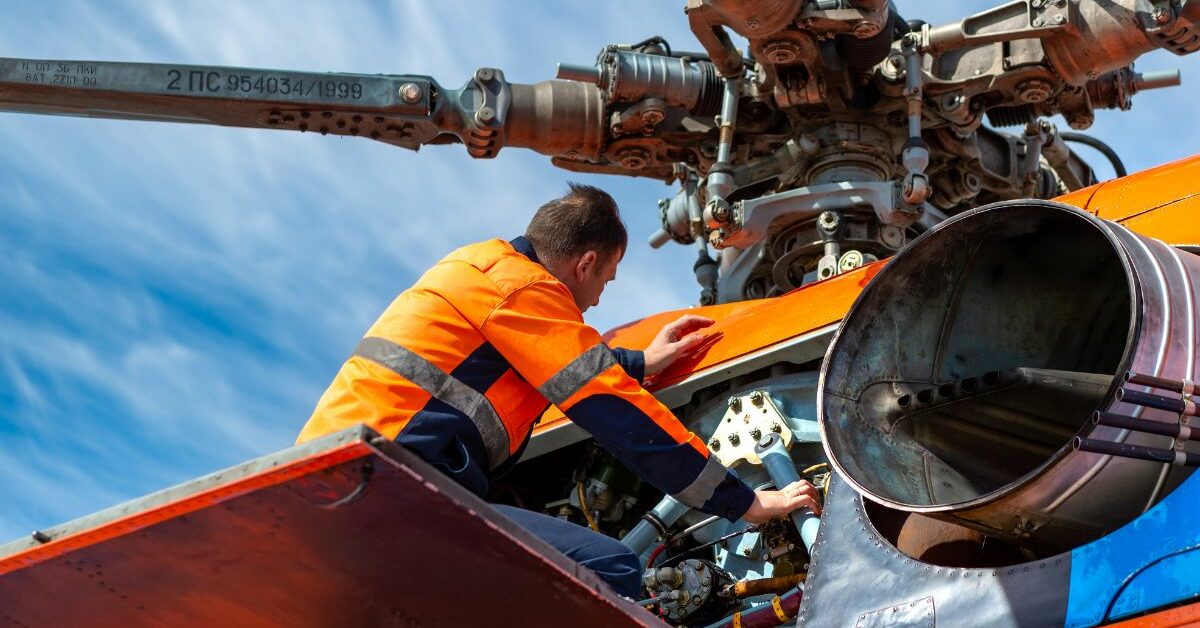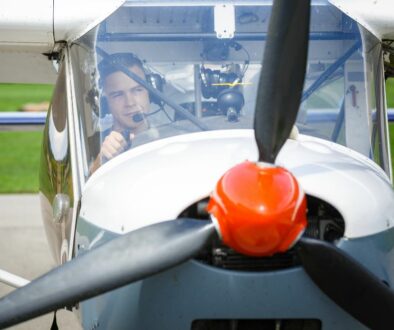How To Become A Helicopter Mechanic?
Becoming a helicopter mechanic can be a fulfilling career choice for anyone interested in aircraft maintenance. Helicopter mechanics are trained professionals responsible for the repair and maintenance of helicopters, ensuring that they operate safely and efficiently. If you’re interested in becoming a helicopter mechanic, there are several steps you’ll need to take to achieve your career goals.
Steps to Become a Helicopter Mechanic
In addition to obtaining a high school diploma or equivalent qualification and enrolling in an AME program, there are several other steps you can take to increase your chances of success as a helicopter mechanic.
- Stay Up-to-Date with Technology
One important step is to stay up-to-date with the latest technology and advancements in the field. This can be accomplished by attending industry conferences, workshops, and seminars, as well as subscribing to relevant trade publications.
- Develop Problem-Solving Skills
Another crucial aspect of becoming a successful helicopter mechanic is developing strong problem-solving skills. Helicopters are complex machines, and diagnosing and repairing issues requires a great deal of critical thinking and troubleshooting. You can develop these skills by taking on challenging repair projects and seeking out mentorship from experienced mechanics.
- Be Committed to Safety
It’s also important to have a strong attention to detail and a commitment to safety. Helicopters are intricate machines, and even small mistakes can have serious consequences. As a helicopter mechanic, you’ll need to be meticulous in your work and always prioritize safety.
- Build Network
Finally, building a strong network of industry contacts can be invaluable in advancing your career as a helicopter mechanic. Attend industry events, join professional organizations, and connect with other mechanics and industry professionals to build relationships and stay informed about job opportunities and advancements in the field.
By following these steps and committing to ongoing learning and professional development, you can build a successful career as a helicopter mechanic.
Skills Needed For Becoming A Helicopter Mechanic
Beyond the required qualifications, anyone interested in a career in helicopter maintenance needs to have additional skills to succeed in the job. For example, this career requires a great deal of attention to detail, as mechanics must take care to ensure that helicopters are working efficiently by diagnosing and troubleshooting multiple complex systems.
Helicopter mechanics must also have a deep understanding of the various components that make up a helicopter, including the engine, rotor blades, and transmission. This knowledge is critical to ensure that they can carry out repairs and maintenance effectively. Mechanics must also be familiar with the various tools and equipment used in helicopter maintenance, including specialized diagnostic and testing equipment.
Additionally, the role of a helicopter mechanic requires workers to have a significant amount of physical stamina. The job demands them to stand, crouch, lift, and sit in uncomfortable positions for long periods. They must also be able to work in tight spaces and at heights, as helicopters are often stored in hangars or on elevated platforms.
Helicopter mechanics must also have excellent problem-solving skills. They must be able to diagnose and troubleshoot complex issues quickly and effectively, often under pressure. Being able to work well under pressure is essential in this role, as mechanics must work to tight deadlines to ensure that helicopters are ready for use when needed.
Lastly, helicopter mechanics require excellent communication skills to communicate effectively with coworkers and clients alike. They must be able to explain technical issues in simple terms, so that non-technical staff can understand the nature of the problem. They must also be able to work collaboratively with other mechanics and engineers to carry out their duties appropriately.
What is A Helicopter Mechanic?
A helicopter mechanic is a professional technician responsible for the routine maintenance and repair of various helicopter systems. The job entails inspecting, troubleshooting, repairing, and maintaining the engines, avionics, mechanical and electrical systems of helicopters, among others.
Helicopter mechanics are highly skilled professionals who work in a variety of settings, including helicopter repair shops, airports, and military bases. They are responsible for ensuring that helicopters are in perfect working condition before takeoff and after landing. They use a variety of tools and equipment to diagnose and repair problems with the helicopter’s systems, including engines, rotors, and avionics.
In addition to repairing and maintaining helicopters, helicopter mechanics also have the responsibility of certifying that the helicopter they have repaired or maintained conforms to appropriate and official aviation regulations. This certification testifies that the helicopter service is feasible, safe, and meets the required quality standards.
Helicopter mechanics are required to have a thorough understanding of the principles of flight and aerodynamics. They must also have knowledge of the various types of helicopters, their systems, and components. In addition, they must be able to read and interpret technical manuals, schematics, and blueprints.
Helicopter mechanics work in a high-pressure environment and must be able to work quickly and efficiently to diagnose and repair problems. They must also be able to work in a team environment and communicate effectively with other mechanics, pilots, and support staff.
Overall, a career as a helicopter mechanic can be challenging and rewarding. It requires a high level of skill and knowledge, but it also offers the opportunity to work with cutting-edge technology and be part of a highly specialized team. If you have a passion for aviation and a desire to work in a dynamic and exciting field, then a career as a helicopter mechanic may be right for you.
The Benefits of Becoming a Helicopter Mechanic
In addition to the benefits mentioned above, working as a helicopter mechanic also allows for the opportunity to work in a dynamic and exciting environment. Helicopters are used in a variety of industries, including emergency medical services, firefighting, and law enforcement. As a result, helicopter mechanics may find themselves working in unique and challenging environments, such as remote locations or in high-pressure situations.
One of the most significant benefits of working as a helicopter mechanic is the sense of pride that comes with knowing you are responsible for ensuring the safety of both pilots and passengers. Helicopter mechanics play a crucial role in ensuring that aircraft are safe and reliable, which is essential for the success of any aviation operation.
Another benefit of working as a helicopter mechanic is the opportunity to work with a team of highly skilled professionals. Helicopter maintenance requires a high level of expertise, and mechanics often work alongside other aviation professionals, such as pilots and engineers. This collaborative environment fosters a sense of camaraderie and teamwork that can be incredibly rewarding.
Finally, working as a helicopter mechanic can provide opportunities for travel and adventure. Many aviation companies operate in different parts of the world, and mechanics may have the opportunity to travel to new and exciting destinations.
Additionally, working with helicopters can provide opportunities for unique experiences, such as flying in a helicopter or participating in search and rescue missions.
Working as a helicopter mechanic offers a range of benefits, including opportunities for advancement, job security, and exposure to unique challenges. Additionally, the job provides opportunities to work with new and immersive technology, work in exciting environments, and travel to new and exciting destinations. For those interested in a career in aviation, working as a helicopter mechanic is an excellent choice.
Becoming a helicopter mechanic requires a substantial investment in education and hands-on training. However, the career is a great option for anyone with an interest in aviation and mechanical work. The benefits of working in this field are many, including competitive salaries, job security, and opportunities for career growth.




